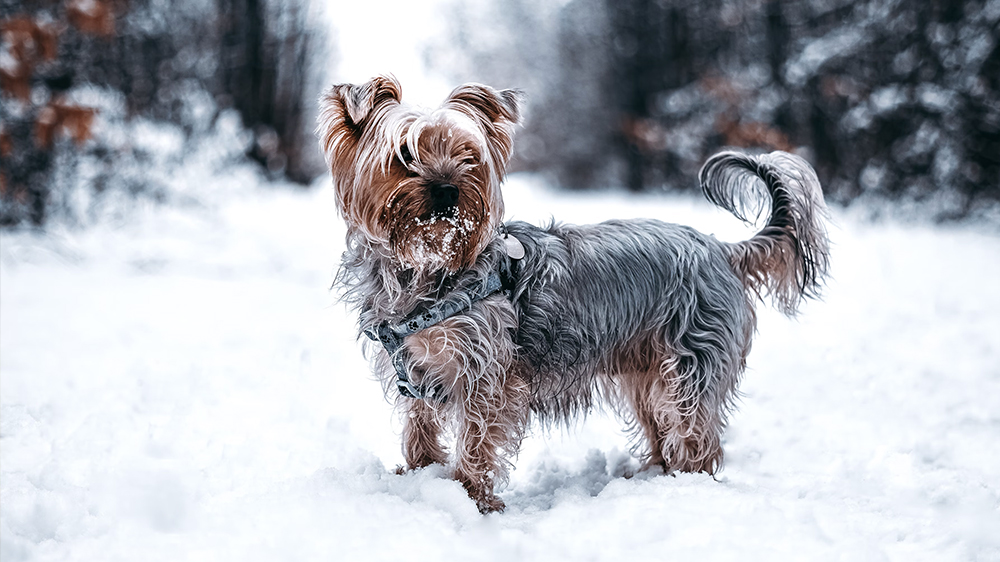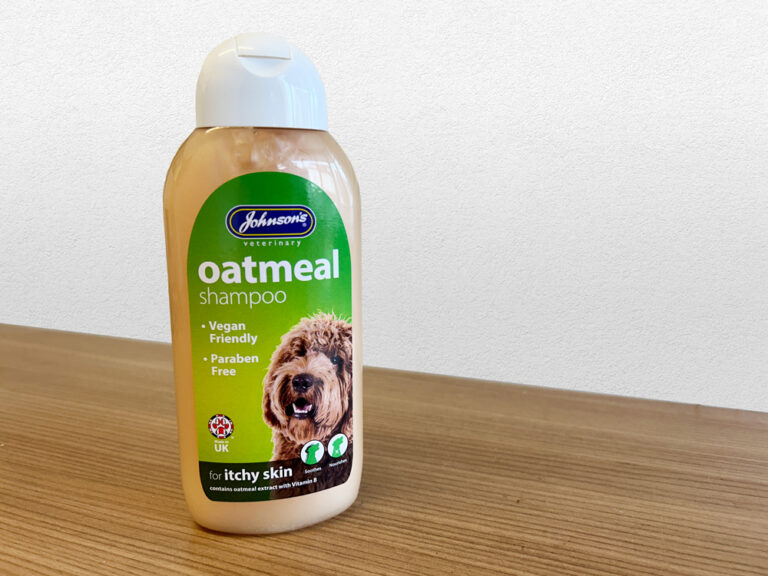With temperatures in the UK plummeting to a chilling average of 2°C during the winter months, the nation’s dog owners will undoubtedly be presented with a number of unique challenges when trying to care for their pets.
The combination of freezing temperatures, reduced daylight hours, and an increase in potential winter hazards mean a more specialised approach to maintaining a dog’s wellbeing will be needed, with care routines reviewed and adapted regularly to better address the risks posed to canines by the UK’s inclement climate.
From food adjustments and grooming modifications to enhanced safety measures during outdoor activities, proactive protection and careful consideration will be crucial for managing a dog’s health and comfort during the next few months.
To help you better weather the storm, here are our top tips for looking after pet pooches throughout the winter;
Nutrition
Proper nutrition is essential for maintaining your dog’s health year-round, but it becomes particularly important during the colder months. Winter can bring changes to a dog’s activity levels, and their portion sizes should reflect this. Highly active dogs may require increased food intake to sustain their energy levels, while less active dogs can benefit from smaller portions to avoid unnecessary weight gain.
Ensuring fresh water is always available is equally important in winter. Despite the cold, dogs can still become dehydrated, making regular access to clean water a priority for their overall well-being.
Grooming
Regular grooming and brushing are essential for maintaining your dog’s coat health, regulating their body temperature, and helping distribute natural oils throughout their fur. A dog’s winter coat acts like a jacket, protecting them from the cold, so it is important to avoid shaving their fur during the colder months.
If you find mats while grooming, gently brush them out or carefully trim the fur to prevent discomfort. Equally, to avoid the formation of ice balls, trim carefully around the pads or ask your groomer to shave them out at your dog’s next appointment.
Avoid bathing your dog unless absolutely necessary to prevent skin dryness, and when necessary, use a moisturising shampoo like our Oatmeal Shampoo to maintain skin health and ensure your pet is kept warm until they are fully dry.
Exercise and walking
Winter walks require extra precautions to ensure the safety of both you and your dog as darker evenings set in. Equip yourself and your dog with reflective gear, such as LED collars, leads, and reflective vests, to enhance visibility during dim winter afternoons. Protect your dog’s paws by applying paw balm before heading out, and make sure to clean their paws thoroughly after the walk to remove harmful substances like rock salt and de-icers. Rubbing in paw balm after cleaning can also help prevent their pads from cracking in the cold weather.
Be cautious around roads with puddles that may contain antifreeze, as it poses a serious risk if ingested, and steer clear of frozen water bodies to avoid accidents.
On particularly harsh days, consider shortening outdoor walks and incorporating indoor activities to provide your dog with enrichment while keeping them safe and warm. These measures will help ensure that winter walks remain enjoyable and hazard-free.
Shelter and warmth
Creating a comfortable indoor environment for your dog becomes vital during winter months. Positioning your dog’s bed away from cold surfaces and drafty areas ensures it remains well-insulated and cosy, and don’t forget to provide additional blankets too. Although heated dog beds can provide additional comfort, it’s important to be aware that they can cause burns or sores. Keeping the temperature within your house warm will be far more effective in making sure both you and your four-legged friend toasty and warm.
Install protective barriers around heaters and fireplaces to prevent accidental burns to your dog. Older dogs or dogs with shorter coats may benefit from wearing jumpers or sweaters indoors during colder periods.
If your dog is kept in a kennel outside for any period of time ensure their quarters are well maintained, raise any bedding off the floor to avoid damp and consider bringing them indoors when temperatures drop below zero.
Seasonal behaviour changes
Winter months often bring noticeable changes in canine behaviour patterns. Dogs may exhibit increased lethargy or restlessness due to reduced outdoor activities. Combat these changes by implementing engaging indoor activities and training sessions to maintain mental stimulation. Create enrichment opportunities through puzzle toys, indoor agility courses, and interactive play sessions to keep your dog physically and mentally active despite the winter weather.
Special considerations
Certain dogs require additional attention during winter months. Puppies, senior dogs, and those with existing health conditions show increased sensitivity to cold temperatures. These vulnerable groups need carefully monitored exposure to cold conditions and require warm, dry resting areas away from drafts. As mentioned above they may benefit from a coat or jumper when out on walks.
Emergency precautions
Understanding and identifying signs of cold-weather emergencies enables prompt response to potential health threats. Keep an eye out for hypothermia symptoms, including shivering, pale lips and gums, and decreased energy levels.
Pet owners should also be cautious about potential hazards commonly encountered during the winter months, such as antifreeze and rock salt. These substances, often found on driveways and pavements, pose significant health risks to dogs if ingested and will require immediate veterinary intervention. Using pet-safe alternatives or closely monitoring areas where these materials are present can help protect your pet from harm.
Effective winter care for dogs in the UK requires a multi-layered approach that includes nutrition, grooming, exercise, shelter, and safety considerations. By implementing appropriate adjustments to daily care routines and remaining vigilant about potential hazards, pet owners can ensure their dogs maintain optimal health and comfort throughout the winter months.





